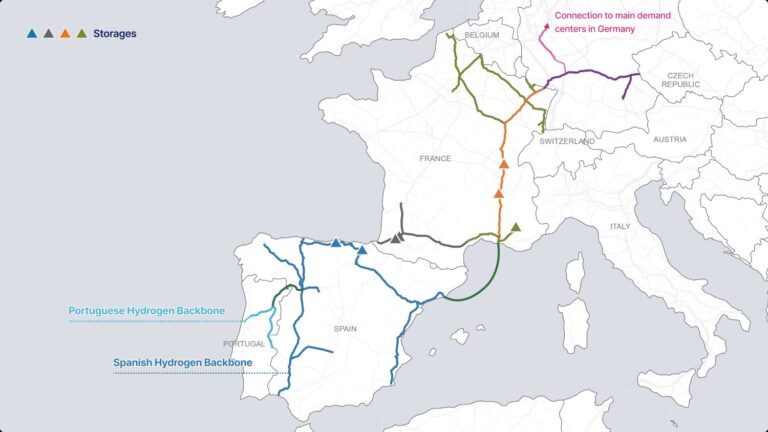
The three developing partners, in coordination with the associated partner OGE, signed the JDA on June 25 in Madrid. The agreement defines the conditions under which the parties will collaborate on the participation of the BarMar project in its development phase.
The JDA specifies the conditions for the TSOs to jointly develop the necessary feasibility studies concerning BarMar and sets out the preliminary minimal conditions for the final investment decision (FID), as well as the main principles for the establishment of the Special Project Vehicle (SPV) and the definition of its governance.
According to the terms of the agreement, and pending the closing of the FID, Enagás will contribute 50% of the shareholding, GRTgaz 33,3% and Teréga 16,7%, representing identical percentages in the Spanish and French parts of the project BarMar: 50% each.
On June 25, Enagás and REN also announced signing a side letter to their memorandum of understanding (MoU) to jointly develop studies for CelZa, the hydrogen interconnection between Portugal and Spain.
Together, BarMar and CelZa form the H2Med project, also known as the European first major hydrogen corridor. The H2med project is a transnational effort to connect the hydrogen networks of the Iberian Peninsula to those of France, Germany and the whole of North-West Europe. Its goal is to enable Europe to be supplied with affordable, renewable hydrogen by 2030.
The €2.5 billion project was launched in October 2022 by the President of the Government of Spain, the President of France, and the Prime Minister of Portugal. In October 2023, German transmission system operator OGE joined Enagás, GRTgaz, and Teréga on a quest to develop the H2Med.
On 28 November 2023, the European Commission selected the H2med project to be included on the list of Projects of Common Interest (PCI).
The project has progressed into the next development phase with contracts for preliminary engineering and environmental impact studies awarded in March 2024.